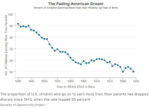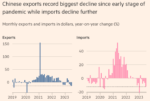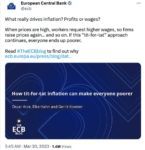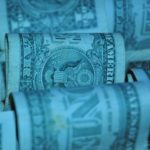China is on the edge of recession — excluding Covid, for the first time since 2008 — as new data showed all-important manufacturing contracted for the fourth month in a row with particular weakness in new orders.In other words, what they’ve got is a backlog, then it’s a cliff.Manufacturing makes up a third of China’s economy — much more than the US. The collapse of China’s property — another third of China’s economy — is adding further fuel to the fire.Offices Emptier than CovidLondon’s Financial Times reports that office buildings in China are emptier than they were during the Covid lockdowns. FT notes that work-at-home hasn’t taken off in China, implying the main driver of empty offices is layoffs.In Shanghai, office vacancies are at 21%. In Shenzhen, China’s central export hub,
Read More »2024-09-25


































